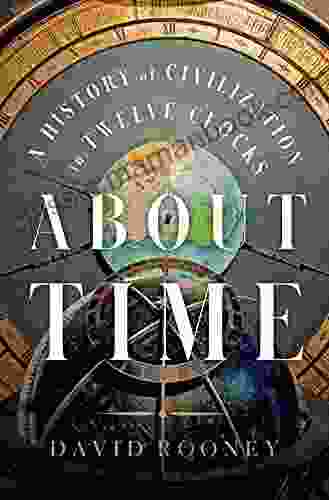Unveiling the New Poetics of Chekhov's Plays: A Comprehensive Exploration of Modernist Techniques

Anton Chekhov, renowned as one of the greatest playwrights of all time, revolutionized the dramatic landscape with his pioneering techniques, heralding the advent of modernism in theater. His plays, marked by their profound depth and psychological realism, continue to captivate audiences worldwide, offering a timeless glimpse into the human condition.
5 out of 5
| Language | : | English |
| File size | : | 2672 KB |
| Text-to-Speech | : | Enabled |
| Screen Reader | : | Supported |
| Enhanced typesetting | : | Enabled |
| Print length | : | 715 pages |
| Lending | : | Enabled |
| Paperback | : | 108 pages |
| Item Weight | : | 4.5 ounces |
| Dimensions | : | 5 x 0.27 x 8 inches |
This article embarks on a comprehensive journey into the new poetics of Chekhov's plays, unraveling the innovative literary and theatrical devices that set them apart. We will delve into the narrative structure, character development, use of symbolism, subtext, and the iconic "Chekhov's gun," examining how these elements coalesce to create a multifaceted and deeply affecting theatrical experience.
Deconstructing Narrative Structure: Slices of Life and Fragmented Time
Chekhov's plays often unfold as a series of seemingly mundane, everyday events, akin to "slices of life." He eschewed traditional plot-driven narratives, instead focusing on the unfolding of characters' lives in real time, with all their inherent complexities and contradictions.
Moreover, Chekhov employed a fragmented temporal structure, breaking away from the conventions of linear storytelling. His plays often jump between different moments in time, capturing the fluidity of life and the elusive nature of memory. This fragmentation mirrors the fragmented nature of human experience, adding layers of depth and complexity to his characters.
Exploring Character Development: The Inner Workings of Human Psyche
Chekhov's characters are not merely plot devices; they are intricately drawn individuals, grappling with their own existential dilemmas and internal conflicts. He possessed an uncanny ability to delve into the depths of human psyche, revealing the hidden motivations, desires, and fears that shape our actions.
Through subtle dialogue and nuanced stage directions, Chekhov exposes the complexities of his characters. Their psychological realism makes them instantly relatable, allowing the audience to connect with their struggles and triumphs on a deeply personal level.
Unveiling Symbolism: A Tapestry of Hidden Meanings
Symbolism permeates the fabric of Chekhov's plays, adding layers of meaning beyond the surface narrative. Objects, actions, and even characters can carry symbolic significance, enriching the play's thematic depth.
For instance, in "The Seagull," the titular seagull represents freedom and unattainable aspirations, while the cherry orchard in "The Cherry Orchard" symbolizes loss and the inevitable passage of time. By weaving these symbolic elements into the narrative, Chekhov invites the audience to ponder the hidden dimensions of the play.
Subtext: The Unspoken but Implied
Chekhov was a master of subtext, the unspoken communication that flows beneath the surface of dialogue. His characters often communicate their true feelings and intentions through subtle gestures, pauses, and unspoken words.
This subtextual layer adds immense depth to Chekhov's plays, requiring the audience to engage actively in the interpretation of the characters' motivations and relationships. It invites us to become active participants in the unfolding drama, deciphering the unspoken exchanges that shape the play's emotional undercurrents.
The Iconic "Chekhov's Gun": A Principle of Dramatic Economy
The renowned "Chekhov's gun" principle, named after the playwright himself, dictates that every element introduced in a play must serve a purpose and contribute to the overall narrative. This principle of dramatic economy ensures that every detail, no matter how seemingly insignificant, plays a role in the unfolding plot.
By adhering to this principle, Chekhov creates a sense of inevitability and causality within his plays. The audience remains constantly engaged, anticipating the consequences of seemingly innocuous actions, foreshadowed by the of seemingly unrelated elements.
Atmosphere and Mood: Captivating the Senses
Atmosphere and mood play a pivotal role in setting the tone and immersing the audience in the world of Chekhov's plays. Through vivid descriptions, evocative language, and carefully crafted stage directions, he transports us into the emotional landscapes of his characters.
Whether it's the oppressive atmosphere of "Uncle Vanya" or the melancholic mood of "The Three Sisters," Chekhov's ability to create palpable atmospheres and moods enhances the emotional impact of his plays, allowing the audience to viscerally experience the characters' struggles and joys.
Existential Themes: Exploring the Meaning of Life
Underlying the everyday realities depicted in Chekhov's plays is a profound exploration of existential themes. His characters grapple with questions of life's purpose, the inevitability of death, and the elusive nature of happiness.
Through their struggles and reflections, Chekhov invites us to confront our own existential dilemmas. His plays offer no easy answers but instead encourage us to embrace the complexities and absurdities of life, finding meaning in the fleeting moments of connection and beauty that punctuate our existence.
Anton Chekhov's plays stand as a testament to his innovative spirit and profound understanding of human nature. Through his revolutionary techniques, he transformed the dramatic landscape, paving the way for modernism in theater.
By deconstructing narrative structure, exploring character development, employing symbolism, and utilizing subtext, Chekhov created plays that resonate deeply with our own human experiences. His "Chekhov's gun" principle ensures dramatic economy, while his masterful creation of atmosphere and mood captivates the senses.
Ultimately, Chekhov's plays invite us to delve into the enigmatic depths of human existence, confronting our own existential questions and finding solace in the shared struggles of his characters. His new poetics continue to inspire and challenge audiences worldwide, solidifying his legacy as one of the greatest playwrights of all time.
5 out of 5
| Language | : | English |
| File size | : | 2672 KB |
| Text-to-Speech | : | Enabled |
| Screen Reader | : | Supported |
| Enhanced typesetting | : | Enabled |
| Print length | : | 715 pages |
| Lending | : | Enabled |
| Paperback | : | 108 pages |
| Item Weight | : | 4.5 ounces |
| Dimensions | : | 5 x 0.27 x 8 inches |
Do you want to contribute by writing guest posts on this blog?
Please contact us and send us a resume of previous articles that you have written.
 Top Book
Top Book Novel
Novel Fiction
Fiction Nonfiction
Nonfiction Literature
Literature Paperback
Paperback Hardcover
Hardcover E-book
E-book Audiobook
Audiobook Bestseller
Bestseller Classic
Classic Mystery
Mystery Thriller
Thriller Romance
Romance Fantasy
Fantasy Science Fiction
Science Fiction Biography
Biography Memoir
Memoir Autobiography
Autobiography Poetry
Poetry Drama
Drama Historical Fiction
Historical Fiction Self-help
Self-help Young Adult
Young Adult Childrens Books
Childrens Books Graphic Novel
Graphic Novel Anthology
Anthology Series
Series Encyclopedia
Encyclopedia Reference
Reference Guidebook
Guidebook Textbook
Textbook Workbook
Workbook Journal
Journal Diary
Diary Manuscript
Manuscript Folio
Folio Pulp Fiction
Pulp Fiction Short Stories
Short Stories Fairy Tales
Fairy Tales Fables
Fables Mythology
Mythology Philosophy
Philosophy Religion
Religion Spirituality
Spirituality Essays
Essays Critique
Critique Commentary
Commentary Glossary
Glossary Bibliography
Bibliography Index
Index Table of Contents
Table of Contents Preface
Preface Introduction
Introduction Foreword
Foreword Afterword
Afterword Appendices
Appendices Annotations
Annotations Footnotes
Footnotes Epilogue
Epilogue Prologue
Prologue Ernest Cline
Ernest Cline Edie Eckman
Edie Eckman Ross W Greene
Ross W Greene Shirley Raye Redmond
Shirley Raye Redmond Tracy Maurer
Tracy Maurer Paul Werstine
Paul Werstine Randall L Boykin
Randall L Boykin Franz Wright
Franz Wright Terry James
Terry James Susan Frybort
Susan Frybort Carmen Aguirre
Carmen Aguirre Jane Keefer
Jane Keefer Susan August
Susan August James Diez
James Diez Mary Gibson
Mary Gibson Lara Trout
Lara Trout Morgan Housel
Morgan Housel David Throop
David Throop Jayne Smith
Jayne Smith James Pierson Beckwourth
James Pierson Beckwourth
Light bulbAdvertise smarter! Our strategic ad space ensures maximum exposure. Reserve your spot today!

 Gavin MitchellAt the Dark End of the Street: A Haunting and Heartbreaking Exploration of...
Gavin MitchellAt the Dark End of the Street: A Haunting and Heartbreaking Exploration of... Gene SimmonsFollow ·7k
Gene SimmonsFollow ·7k Henry JamesFollow ·6.3k
Henry JamesFollow ·6.3k Nick TurnerFollow ·3k
Nick TurnerFollow ·3k Samuel WardFollow ·7.6k
Samuel WardFollow ·7.6k Mark MitchellFollow ·14.9k
Mark MitchellFollow ·14.9k Blake KennedyFollow ·18.9k
Blake KennedyFollow ·18.9k Colby CoxFollow ·15.4k
Colby CoxFollow ·15.4k Eddie BellFollow ·11.3k
Eddie BellFollow ·11.3k

 Bryan Gray
Bryan GrayCello Alternativo: Exploring Contemporary Pizzicato...
: Embracing the Avant-Garde Within...

 Victor Hugo
Victor HugoThe Social Revolution: Barry Libert's Vision for a More...
In a world where...

 Tony Carter
Tony CarterA Comprehensive Guide to Crafting Clear and Effective Job...
A job description is a critical tool...

 Deacon Bell
Deacon BellSelected Poems And Prose Lorenzo Da Ponte Italian Library
Lorenzo Da Ponte, born...

 Francisco Cox
Francisco CoxWhat You Need To Know About Opportunity Cost: A...
Opportunity cost is a fundamental concept...

 Bill Grant
Bill GrantWhy Our Kids With Behavioral Challenges Are Falling...
Every year,...
5 out of 5
| Language | : | English |
| File size | : | 2672 KB |
| Text-to-Speech | : | Enabled |
| Screen Reader | : | Supported |
| Enhanced typesetting | : | Enabled |
| Print length | : | 715 pages |
| Lending | : | Enabled |
| Paperback | : | 108 pages |
| Item Weight | : | 4.5 ounces |
| Dimensions | : | 5 x 0.27 x 8 inches |










